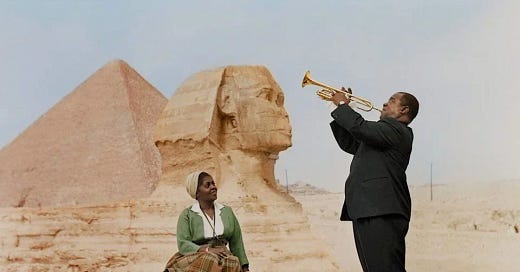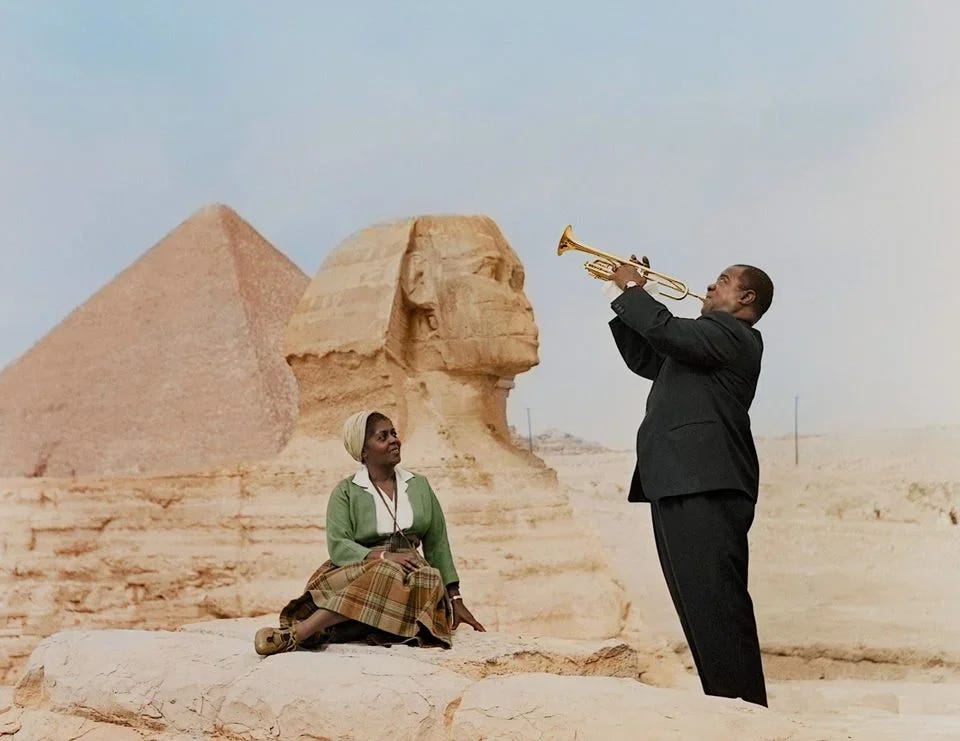We are powerful enough to light the world at night, to artificially refrigerate food, to leave Earth’s atmosphere and orbit it from outer space. But we cannot save those we love from suffering. This is the story of human history as I understand it — the story of an organism that can do so much, but cannot do what it most wants.
John Green
Dear you,
You will want answers.
You will want guarantees.
You will not get them.
Here is what you’ll get instead...
We’ve split the atom.
We’ve built skyscrapers that brush the clouds and tunnels that thread beneath the sea. We’ve mapped the human genome, launched satellites, and sent machines into deep space, carrying golden records and human songs.
We’ve engineered crops that defy drought and created algorithms that predict traffic before it forms. We can transplant hearts. Replace joints.
We’ve done all this with our minds and hands. We are astonishing.
And still—
I cannot tell you how long my dog will live. I cannot fix what breaks inside the people I care for most. I cannot say when grief will loosen its grip, or if fear will ever let go.
I can stream Mozart in the desert. Track a package from a warehouse in Ohio to my doorstep in Virginia. Watch, in real time, a volcano erupt halfway across the world.
But I cannot predict when a memory will ambush me — the scent of my grandmother suddenly present in a crowded elevator, bringing tears I can’t explain to strangers. I cannot will myself to forget the sound of a voice I’ll never hear again.
We’ve harnessed forces our ancestors could not imagine. And yet we cry in the dark, undone by how much remains beyond us.
The wonder of being human isn’t just invention, it’s the ache of knowing what we can’t control. Not just that we can’t control it, but that we know.
We live on that knife’s edge of awareness.
We plan honeymoons, home renovations, retirement accounts, knowing any of them might be shattered by illness, by accident, by war.
We sketch five-year plans while cells inside us quietly rebel. We take photos to freeze time even as it slips through our fingers. We sing “Happy Birthday,” marking another year gone, another year closer to the end.
Certainty lures us with spreadsheets. We sync calendars, budget for leave, invest in 401(k)s. We buy insurance. We read the fine print. We chase peace through preparation — and then one phone call sends the whole thing into freefall. It’s not just the event itself that guts us. It’s the shock that the system didn’t hold. That the planning didn’t save us.
We watch our parents age, the people who once carried us, now struggling to carry themselves. We notice our own bodies changing — a new pain here, a limitation there — reminders that we, too, are impermanent.
And still—
We begin again.
That’s the real miracle. Not the skyscrapers or the spaceships, but the daily choice to keep going in the face of everything we cannot promise.
We know too much. We know too little. That is our curse and our grace.
But I don’t think we were built for certainty. I think we were built for care.
Because what other species builds sandcastles fully aware of the tide?
What else stitches quilts, writes poems, plants gardens? Not because they’ll last forever, but because they matter now.
We’re helpless in a hundred ways. But we’re trying. Constantly. Fiercely.
We bear witness. We hold hands. We send “thinking of you” texts that land at just the right moment.
We arrive. We make soup. We play Sam Cooke with the windows down. We sit in silence when silence is all there is.
We name stars. We keep voicemails. We wear the faded shirts of people we’ve lost because they still hold the shape of someone we can no longer hold.
We return to work the day after the funeral. We drive to therapy. We start over. Not because we’re naïve, but because we have to. Because stasis is a kind of death, too.
This is power.
Not the kind that makes headlines or history books. But the kind that keeps us alive.
Because it takes strength and love to plant trees that’ll survive us. To teach children things we had to learn the hard way.
And so, I don’t think the story of us is what we’ve built. I think it’s what we keep doing, despite knowing how fragile it all is.
We stay.
Even as satellites fall and empires crumble. Even as we lose everything we thought we couldn’t live without.
We persist in our strange, beautiful defiance.
And that, somehow, is its own kind of awe.
This is the paradox at the heart of being human.
We are dust that dream of stars. We are moments that yearn for eternity.
We know everything ends.
And still…
Louis Armstrong once played his trumpet in front of the Sphinx.
A child of New Orleans, standing before a monument built 4,500 years ago, lifting his horn to the sky. What does that tell you?
That we’ve always made music in the shadow of time.
A breath turned into notes, sent into the wind.
It didn’t last.
But it mattered.
P.S.
This piece was inspired by John Green’s Everything Is Tuberculosis, which reminded me that wonder, absurdity, and grief often share the same sentence.
If you made it this far, click that itty-bitty digital organ! ❤️








Dang. This is what writing should be. ⚡⚡⚡
Gorgeous writing, Caroline. I'm reminded of the line from Waiting for Godot: "We give birth astride a grave"—and yet there's beauty in the darkness, in knowing at once too much and too little. Thank you for this.